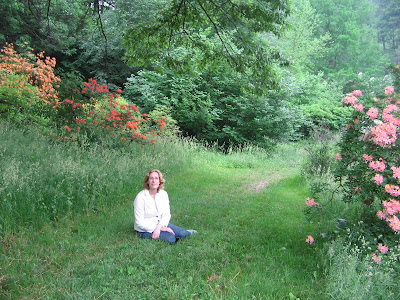Tired of my own thoughts, stale and weak,
I'll let these nobler voices speak.
The Huron Carol – I'll let these nobler voices speak.
Father Jean de Brebeuf, 1640
‘Twas in the moon of winter-time
When all the birds had fled,
That mighty Gitchi Manitou
Sent angel choirs instead;
Before their light the stars grew dim,
And wandering hunter heard the hymn:
“Jesus your King is born, Jesus is born,
In excelsis gloria.”
Within a lodge of broken bark
The tender Babe was found,
A ragged robe of rabbit skin
Enwrapp’d His beauty round;
But as the hunter braves drew nigh,
The angel song rang loud and high.
“Jesus your King is born, Jesus is born,
In excelsis gloria.”
O children of the forest free,
O sons of Manitou,
The Holy Child of earth and heaven
Is born today for you.
Come kneel before the radiant Boy
Who brings you beauty, peace and joy.
“Jesus your King is born, Jesus is born,
In excelsis gloria.”
Christmas: 1924 -- Thomas Hardy
“Peace upon earth!” was said. We sing it
And pay a million priests to bring it.
After two thousand years of mass
We’ve got as far as poison-gas.
The Holly-bough – Charles Mackay
Ye who have scorn’d each other,
Or injured friend or brother,
In this fast fading year;
Ye who, by word or deed,
Have made a kind heart bleed,
Come gather here.
Let sinn’d against, and sinning,
Forget their strife’s beginning,
And join in friendship now;
Be links no longer broken,
Be sweet forgiveness spoken
Under the Holly-bough.
Ye who have loved each other,
Sister and friend and brother,
In this fast fading year;
Mother and sire and child,
Young man and maiden mild,
And let your hearts grow fonder,
Come gather here;
And let your hearts grow finder,
As Memory shall ponder
Each past unbroken vow:
Old loves and younger wooing
Are sweet in the renewing
Under the Holly-bough.
Ye who have nourish’d sadness.
Estranged from hope and gladness,
In this fast fading year;
Ye with o’erburden’d mind,
Made aliens from your kind,
Come gather here.
Let not the useless sorrow
Pursue you night and morrow,
If e’er you hoped, hope now—
Take heart, uncloud your faces,
And join in our embraces
Under the Holly-bough.
Ring Out, Wild Bells
-- Alfred, Lord Tennyson
Ring out, wild bells, to the wild sky,
The flying cloud, the frosty light;
The year is dying in the night;
Ring out, wild bells, and let him die.
Ring out the old, ring in the new,
Ring, happy bells, across the snow:
The year is going, let him go;
Ring out the false, ring in the true.
Ring out the grief that saps the mind,
For those that here we see no more,
Ring out the feud of rich and poor,
Ring in redress to all mankind.
Ring out a slowly dying cause,
And ancient forms of party strife;
Ring in the nobler modes of life,
With sweeter manners, purer laws.
Ring out the want, the care the sin,
The faithless coldness of the times;
Ring out, ring out my mournful rhymes,
But ring the fuller minstrel in.
Ring out false pride in place and blood,
The civic slander and the spite;
Ring in the love of truth and right,
Ring in the common love of good.
Ring out old shapes of foul disease,
Ring out the narrowing lust of gold;
Ring out the thousand wars of old,
Ring in the thousand years of peace.
Ring in the valiant man and free,
The larger heart, the kindlier hand;
Ring out the darkness of the land,
Ring in the Christ that is to be.

